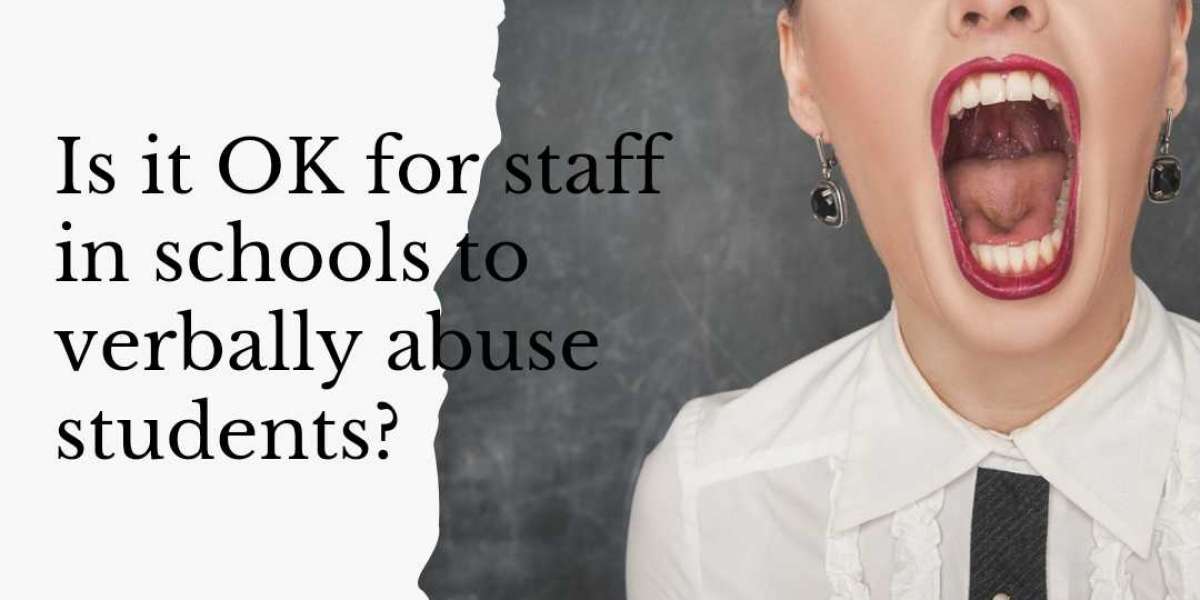Over the last 9 years, since I moved back to the UK, I have been in many schools, as a parent, as a member of staff, and also as someone delivering interventions to students to help them grow. In just about every school I have been in, I have witnessed what I would label abuse of the students at the hands of staff members.
Shortly after I first moved back to the UK in 2014, I found myself in a primary school, in a reception class, where a boy just could not sit still, and it was as if the staff had never had any training on child development as they manhandled him, shoved him up against the wall and forced his legs into a cross-legged position. He was threatened that he would be isolated from the class if he did not stay in that position for the rest of the day. As I watched, my eyes filled with tears and anger filled my heart. I cried on the way home and reported those women, but I was never made aware that anything had been done about it. My children were young at the time - 3 and 5 years old - and I felt scared and helpless, thinking that my children might come into contact with people like those, who were being paid to help and support children, not abuse them.
I realise now, that there is a culture of violence in schools, where the perpetrators are teachers and other members of staff. I'm not saying all members of staff are guilty of this, many of them - most of them - are not, and they are there to support young people because that is their calling, but I have been curious about why staff do not speak up about the verbal abuse being perpertrated against students all across the country.
Yelling, shouting, whatever you want to call it, constitutes verbal abuse, whether by a parent, a teacher or otherwise. It is verbal violence. This abuse can be carried out with words, gestures and policies - yes policies. The regular psychological tearing down of another human being, wherever it is happening, is wrong.
Last year, I delivered a self esteem and success education curriculum at a secondary school, which was part of an Academy Trust. It took me no time at all to notice that the power dynamic between staff and students hasn't changed in the slightest. As an example, on the very last day of the term, during lunchtime, I witnessed a member of staff go berserk, shouting like a maniac, in front of approximately one hundred students and staff (it is plausible that she would have been arrested for this behaviour, had she been in a public place), and not one person remarked at her hateful, shocking vitriol. It is the culture in that school, and many others, to look the other way; and let's just be frank, the students don't have a voice. Any speaking up about it would result in isolation for the rest of the day. It would be considered "back talk", so the attitude of the student, is, "why bother - I'll only get in trouble", anytime an adult shouts at them. They are defeated - and that is wrong and needs to be addressed at all levels, from the top down and bottom up.
I don't believe that educational institutions want to partake in anything that would draw attention to the negative behaviour of their staff. Could it be, that dealing with staff who behave this way, is avoided out of fear of having to deal with the all-powerful teachers unions? I wonder if teachers who recognise the misconduct of their colleagues perhaps don't speak out because of misguided loyalty or fear of reprisal?
If a school has a policy on peer-to-peer bullying, it should also be concerned with staff behaviour towards their students. We must realise that if a teacher or other staff member disparages or humiliates a student, it can encourage other students to do the same. Overt or covert - negative attitutudes are picked up on not only by the receiving students, but all the other human beings around them. If staff are unaware that they are participating in bullying, then they clearly need further training on the subject.
So what are some of the negative consequences of verbal aggression by teachers and other members of staff towards students? Boys and those from lower socio-economic backgrounds are much more likely to be victims of teacher abuse, and as such, this could be perpetuating the cycle of poverty. Verbal aggression leads to less effort and interest on the part of the student, more tension, subsequent delinquent behaviour, academic difficulties and much lower self esteem. Could it be that verbal aggression on the part of a staff member towards a student constitutes a violation of human rights? And if so, how can that be raised as an issue and dealt with? Ponder that.
Imagine that your self esteem is like a stack of poker chips, and that we are playing a game of poker. Imagine that you have 20 chips and I have 200. Who is going to play more conservatively? You are. If you lose 2 bets of 10 chips, you've lost. I can lose 10 chips 20 times before I'm out of the game, so I'm going to take more risks because I can afford to take the losses. Self esteem works in the same way. The more self-esteem you have, the more risks you are willing to take.
One success principle that will help young people build their self esteem is to recognise and celebrate their successes. Get them to do this frequently and they will raise their self esteem and self confidence and are guaranteed to have more successes in the future. You could get your kids to talk about their successes from the day at dinner time or before they go to bed, for example - make it a positive habit.
Not to mention, fostering student voice in schools would create a culture that encourages students to be individual, express themselves, challenge themselves and contribute positively to the school community. It's a key indicator of emotional safety. Teachers may feel like they have so much to do, let alone get to know their students, but there is an irony to this: when they know their students and their voices, students take more ownership of their learning and teaching actually becomes easier. How can we as a society encourage more of this?
I care passionately for young people and want them to succeed in life, and I know my work facilitating a self esteem and success education curriculum helps increase attainment, raises young people's self esteem exponentially, and increases their sense of wellbeing. I want to set up a passion project working with parents, schools, and other organisations who also care passionately about their students, not just on paper, but in real life, to draw attention to the absolute shambles of the school system so that it can improve and/or more parents can feel 100% confident in making the decision to home educating their children.
If you are an academic, a parent of a student with SEND or mental health concerns, an expert in the Human Rights Act or the UN Convention on the Rights of the Child, if your school uses Non Violent Communication, if you are a former teacher, or a current teacher brave enough to speak out, if you are involved in education other than in schools, or in alternative schools or if you are interested in this subject generally and have something to say, then please reach out, as I am creating a podcast to address this and more, and I'd love you to be a part of it!
You can reach me on [email protected] and you can view my website here: https://sarahmccalden.com









B-beautified 1 y
It’s very scary that this can be happening. Sometimes the child cannot control their movement etc x